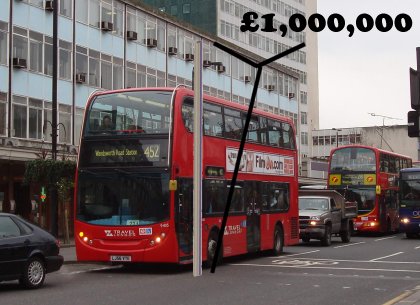Today there is a rumour that Caroline Spelman, Minister for the Environment and Rural Affairs will announce tomorrow a U-turn in the Government's plan to sell off large swathes of England's forests. The rumour indicates that "heritage forests" will be retained and that public access will be protected. Only timber producing forests will be privatised. This story has been reported by Bloomberg as appearing in today's Mail, however it is not mentioned on the Mail website,
Around the Mac that feeds this blog there are numerous pages of newsprint saved, not only for lighting the stove, but because, in the distant past, a headline has grabbed attention. With too little time to read it the page will have been put aside, but not filed, for future reading. This is how an article by Andy Wightman published in the Observer on January 16 comes to hand today. It is headlined "We can transform our countryside. Put forests in the hands of the people" It also appears on his blog www.andywightman.com/wordpress.
If you are a Mail or Telegraph reader, you may think such a headline is a call to rise up and nationalise our countryside, to enable leftish alternatives and their mates to build tepees and engage in communal jolities. Well no.
He quite rightly compares our approach to woodlands to that of the French. Luckily France had a revolution, well luckily it was some time ago, that re-ordered the ownership of national resources such as forests and rivers. Now, for example, for a small fee a young person can purchase a fishing licence to fish in any of France's rivers. Try that in England where fishing rights are fiercely protected. And if you travel extensively through France you see that almost every Commune owns and tends public spaces, including forests, for the benefit of the commune. Rivers and lakes are also sensitively managed as leisure areas for the local village or town.
The Future of English State Forestry
January 16th, 2011 The following piece was published in the Observer on 16 January 2010 and is reproduced here with the addition of annotated footnotes and hyperlinks.
Last week, I received an email from the campaigning group 38 Degrees imploring me to sign a petition to “Save Our Forests”. I studied forestry at university and I love forests. I love the smell of thetrees after rain, and the lemon scent of Douglas fir needles.
In the early 1990s I was also an active campaigner in the Taiga Rescue Network, an alliance of NGOs across the northern boreal regions from
Siberia to Alaska which was set up partly to counter the hypocrisy ofnorthern governments’ demands that countries in the south such as
Brazil should stop deforestation in the Amazon. We labelled Canada the “Brazil of the North” due to its rate of temperate rainforest
destruction, annoying the hell out of the prime minister.
Forests provide clean air, carbon sinks [ie they absorb carbon dioxide], wildlife habitat, homes and shelter for people, fuel, timber, fruits, nuts, medicines, spiritual healing, recreational opportunities… Where to stop? I am a member and co-founder of Reforesting Scotland, a group dedicated to substantial reforestation. All of which is by way of pointing out that I don’t need much convincing to save our (or indeed anyone else’s) forests. In fact, I have a clear vision of the future.
Right across France and Scandinavia, for example, there are extensive community forests. In France, there are 11,000 forest communes – 30% of all communes in the country – and they own around 3 million hectares of forest which is about 20% of the total forest area of
France.
In Scotland, the Forestry Commission runs a National Forest Land Scheme which enables communities to take over ownership of state
forests. Land is now increasingly owned by the people whose lives are most affected by, dependent on and shaped by it. The state is not
benign and it can be as oppressive as any rapacious private landowner.
Years ago I asked a prominent historian of the Highlands and Islands, Dr James Hunter, to write an editorial for a magazine about the future
of forestry in Scotland. Contrary to the prevailing orthodoxy of the time, he observed: “The Forestry Commission is to Scottish forestry
what collectivisation was to Soviet agriculture.” He made a good point. Forest ownership should be spread more widely among communities
and individuals.
Instead, in Britain we still have a hugely skewed pattern of landownership where the predominance of large private estates and farms is mirrored in the public sector by large, rather distant and unaccountable bureaucracies with the title deeds held by government ministers.
Across Norway and Sweden towns and workplaces empty during holidays as people head out to the woods. There, in summer, they will pick
berries, relax in the sunshine and go swimming in the lake. In winter they will ski and have long debates in the sauna. But it’s not just
playtime. One community wood I visited in Norway last year generated £500,000 income and supported two sawmills and a high-quality timber house factory.
Imagine a Britain of small-scale forestry, of farm forestry, of small-scale rural businesses, of community forests. This is not a romantic dream – it’s the reality in France and Finland – but it is a million miles from the mean-spirited, shallow and nihilistic corporate land grab being hatched in Whitehall. To get there or anywhere near there, however, we can’t continue with the status quo.
If these are “our forests”, we need to make them so because the only reason they are under threat is precisely because we the public, unlike our friends in the French forest communes, have no stake whatsoever in their ownership.
Moving in this direction means challenging state power as well as corporate power. This was achieved in France by revolution. Here, we can do it more peacefully but it does mean we need to think more carefully about whose forests these are, why they need to be saved, from whom, and what we would like to see instead.
Which brings me back to the petition and the questions it appeared to pose. I asked myself whose forests I am being asked to save, why they
need to be saved, and what threats they are facing but could find no answers though I was told that the government is planning a massive sell-off of “our national forests” and that they “could be auctioned and fenced-off, run down, logged or turned into golf courses and holiday villages”. Yikes, better sign the petition! But then I remembered my questions.
First, “our forests” relate only to the forests in England. I live in Scotland and haven’t been into an English forest for a long time though the last time I was in the New Forest I was enchanted and such places are clearly worth saving.
Then there’s the fact that these forests are not “our” forests. Moreover, they don’t even belong to the Forestry Commission (FC). All land managed by the FC in Great Britain (Northern Ireland has its own separate Forest Service) is owned by government ministers – in England
that means secretary of state, Caroline Spelman.
So what then is the threat? Spelman stated in October (1) that she was proposing to include powers in the Public Bodies Bill (2) to “enable” Ministers to modernise forestry legislation. The Government then announced that it was looking to sell around 15% of the forestry estate (3) but the really worrying announcement was made by Minister of State Jim Paice on 24 November before a House of Lords Committee (4) when he stated that the government wished to proceed with “very substantial disposal of public forest estate [sic], which could go to the extent of it all”.
Cue the public outcry and rightly so. (I just wish 38 Degrees had explained all this so I didn’t need to do all this digging around.) But is the outcry focused on the right target? Clearly there is (and has long been) opposition to the sell-off of public forests. Even Mrs Thatcher only managed a limited disposal though she too wanted to flog the lot.
Ministers are clearly seeking powers to get round the legal obstacles placed in their way by existing forestry legislation which would limit any disposal to the 15% mentioned earlier. There are other obstacles. Much of the English forest estate (the Forest of Dean, for example) was transferred to the FC by the Crown which would be entitled to compensation if land were sold. But if the Public Bodies Bill is passed, Ministers will have a free hand to drive through their unsavoury proposals.
So there is something far more fundamental about this debate. Ownership by ministers is a precarious arrangement for any land which people regard (rightly) as public land. It means that sell-offs are always possible even without the enabling powers being sought under
the new bill. If citizens and communities want to follow through the logic of the “these are our forests” arguments then why not imagine a different future more along the lines of France or Sweden? Why not real community forestry? Anyone for another petition?
(1) See DEFRA website
(2) See Section 17-19 of Public Bodies Bill. Progress of the Bill can be tracked here.
(3) Written Question by Tim Farron, HC Deb 2 December 2010 c 960W
(4) See House of Lords Evidence (uncorrected transcript) at foot of page 6
A useful briefing SN/SC/5734 from the House of Commons library is available here.
Last week, I received an email from the campaigning group 38 Degrees imploring me to sign a petition to “Save Our Forests”. I studied forestry at university and I love forests. I love the smell of thetrees after rain, and the lemon scent of Douglas fir needles.
In the early 1990s I was also an active campaigner in the Taiga Rescue Network, an alliance of NGOs across the northern boreal regions from
Siberia to Alaska which was set up partly to counter the hypocrisy ofnorthern governments’ demands that countries in the south such as
Brazil should stop deforestation in the Amazon. We labelled Canada the “Brazil of the North” due to its rate of temperate rainforest
destruction, annoying the hell out of the prime minister.
Forests provide clean air, carbon sinks [ie they absorb carbon dioxide], wildlife habitat, homes and shelter for people, fuel, timber, fruits, nuts, medicines, spiritual healing, recreational opportunities… Where to stop? I am a member and co-founder of Reforesting Scotland, a group dedicated to substantial reforestation. All of which is by way of pointing out that I don’t need much convincing to save our (or indeed anyone else’s) forests. In fact, I have a clear vision of the future.
Right across France and Scandinavia, for example, there are extensive community forests. In France, there are 11,000 forest communes – 30% of all communes in the country – and they own around 3 million hectares of forest which is about 20% of the total forest area of
France.
In Scotland, the Forestry Commission runs a National Forest Land Scheme which enables communities to take over ownership of state
forests. Land is now increasingly owned by the people whose lives are most affected by, dependent on and shaped by it. The state is not
benign and it can be as oppressive as any rapacious private landowner.
Years ago I asked a prominent historian of the Highlands and Islands, Dr James Hunter, to write an editorial for a magazine about the future
of forestry in Scotland. Contrary to the prevailing orthodoxy of the time, he observed: “The Forestry Commission is to Scottish forestry
what collectivisation was to Soviet agriculture.” He made a good point. Forest ownership should be spread more widely among communities
and individuals.
Instead, in Britain we still have a hugely skewed pattern of landownership where the predominance of large private estates and farms is mirrored in the public sector by large, rather distant and unaccountable bureaucracies with the title deeds held by government ministers.
Across Norway and Sweden towns and workplaces empty during holidays as people head out to the woods. There, in summer, they will pick
berries, relax in the sunshine and go swimming in the lake. In winter they will ski and have long debates in the sauna. But it’s not just
playtime. One community wood I visited in Norway last year generated £500,000 income and supported two sawmills and a high-quality timber house factory.
Imagine a Britain of small-scale forestry, of farm forestry, of small-scale rural businesses, of community forests. This is not a romantic dream – it’s the reality in France and Finland – but it is a million miles from the mean-spirited, shallow and nihilistic corporate land grab being hatched in Whitehall. To get there or anywhere near there, however, we can’t continue with the status quo.
If these are “our forests”, we need to make them so because the only reason they are under threat is precisely because we the public, unlike our friends in the French forest communes, have no stake whatsoever in their ownership.
Moving in this direction means challenging state power as well as corporate power. This was achieved in France by revolution. Here, we can do it more peacefully but it does mean we need to think more carefully about whose forests these are, why they need to be saved, from whom, and what we would like to see instead.
Which brings me back to the petition and the questions it appeared to pose. I asked myself whose forests I am being asked to save, why they
need to be saved, and what threats they are facing but could find no answers though I was told that the government is planning a massive sell-off of “our national forests” and that they “could be auctioned and fenced-off, run down, logged or turned into golf courses and holiday villages”. Yikes, better sign the petition! But then I remembered my questions.
First, “our forests” relate only to the forests in England. I live in Scotland and haven’t been into an English forest for a long time though the last time I was in the New Forest I was enchanted and such places are clearly worth saving.
Then there’s the fact that these forests are not “our” forests. Moreover, they don’t even belong to the Forestry Commission (FC). All land managed by the FC in Great Britain (Northern Ireland has its own separate Forest Service) is owned by government ministers – in England
that means secretary of state, Caroline Spelman.
So what then is the threat? Spelman stated in October (1) that she was proposing to include powers in the Public Bodies Bill (2) to “enable” Ministers to modernise forestry legislation. The Government then announced that it was looking to sell around 15% of the forestry estate (3) but the really worrying announcement was made by Minister of State Jim Paice on 24 November before a House of Lords Committee (4) when he stated that the government wished to proceed with “very substantial disposal of public forest estate [sic], which could go to the extent of it all”.
Cue the public outcry and rightly so. (I just wish 38 Degrees had explained all this so I didn’t need to do all this digging around.) But is the outcry focused on the right target? Clearly there is (and has long been) opposition to the sell-off of public forests. Even Mrs Thatcher only managed a limited disposal though she too wanted to flog the lot.
Ministers are clearly seeking powers to get round the legal obstacles placed in their way by existing forestry legislation which would limit any disposal to the 15% mentioned earlier. There are other obstacles. Much of the English forest estate (the Forest of Dean, for example) was transferred to the FC by the Crown which would be entitled to compensation if land were sold. But if the Public Bodies Bill is passed, Ministers will have a free hand to drive through their unsavoury proposals.
So there is something far more fundamental about this debate. Ownership by ministers is a precarious arrangement for any land which people regard (rightly) as public land. It means that sell-offs are always possible even without the enabling powers being sought under
the new bill. If citizens and communities want to follow through the logic of the “these are our forests” arguments then why not imagine a different future more along the lines of France or Sweden? Why not real community forestry? Anyone for another petition?
(1) See DEFRA website
(2) See Section 17-19 of Public Bodies Bill. Progress of the Bill can be tracked here.
(3) Written Question by Tim Farron, HC Deb 2 December 2010 c 960W
(4) See House of Lords Evidence (uncorrected transcript) at foot of page 6
A useful briefing SN/SC/5734 from the House of Commons library is available here.






